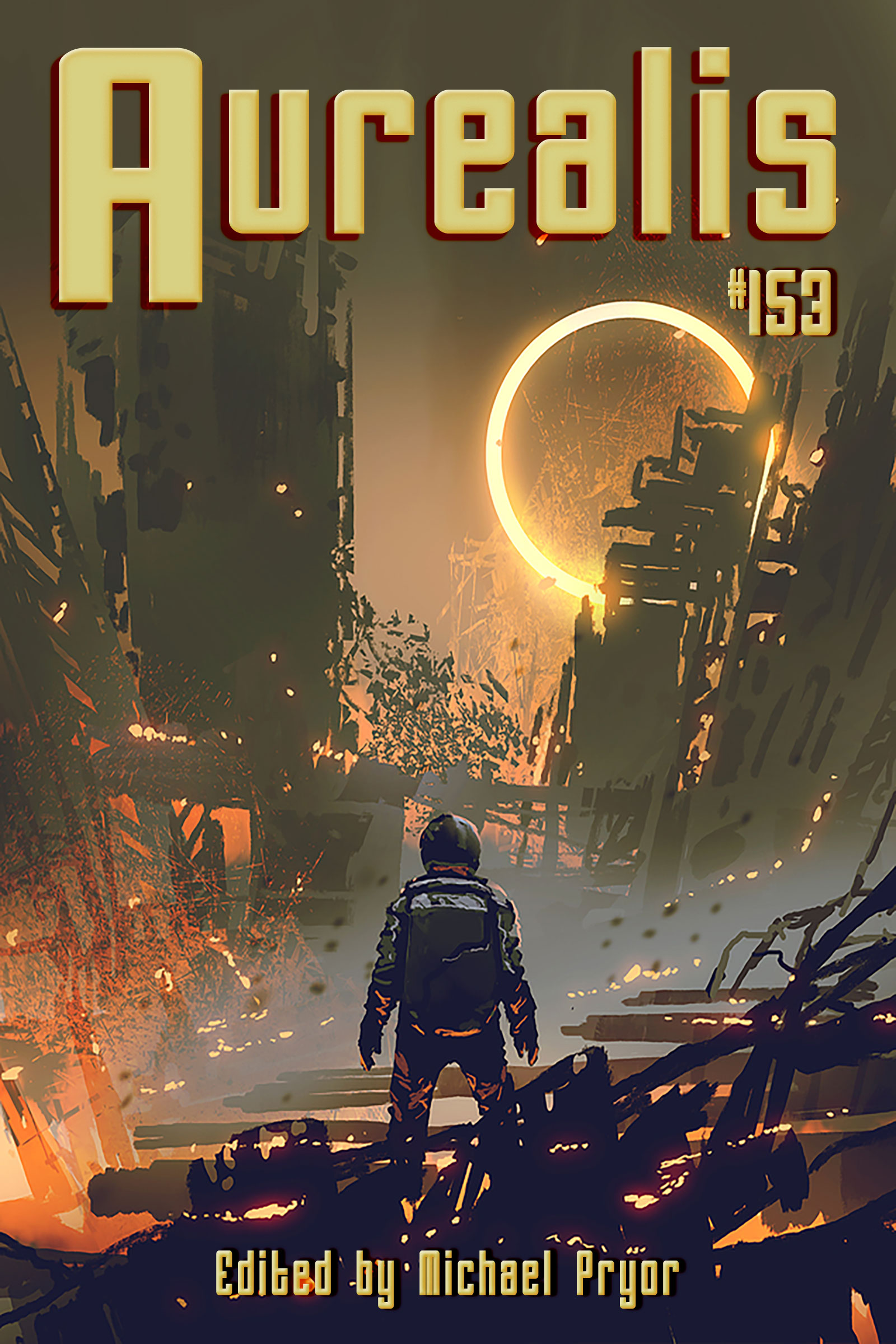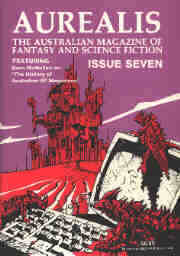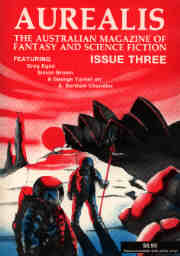Aurealis #153
$3.99
Aurealis #153 features stories from Emma-Grace Clarke, Thoraiya Dyer and Ross Heard with non-fiction Kris Ashton, Todd Sullivan and Claire Fitzpatrick. And if that’s not enough, we have our wide-ranging, thoughtful and detailed Reviews section plus our spellbinding internal art from Lynette Watters, Zuzanna Kwiecien and Emma Weakley.
Go to imagination’s edge with Aurealis!
- From the Cloud — Michael Pryor
- Grief Aside, I Hate It Here — Emma-Grace Clarke
- The Boy With No Heart — Thoraiya Dyer
- Machinations — Ross Heard
- Individualism in 20th Century Dystopian Fiction — Kris Ashton
- The Practicalities of an Alien Invasion — Todd Sullivan
- Social Science Fiction: From The Time Machine to Snowpiercer — Claire Fitzpatrick
If you’ve ever looked at our world with discontent, unhappiness or a feeling of ‘I could do better than that!’ then fantasy writing is for you. We all need assistance, though, from time to time and, so from our many, many years as self-appointed experts, we’re here to help you. Here are some of our most useful, most road-tested and—most importantly—easy to implement tips for creating a fantasy world.
Don’t place your Forest of Terror right next door to your Mountains of Doom alongside your Chasm of Eternal Fear. You can have too much of a good thing.
Remember: rivers flow from the mountains to the sea, not the other way around. Tempting though it may be to have water running uphill, the laws of hydrodynamics are fairly well understood and, if broken, will have unfortunate consequences for urban sewerage and wastewater disposal.
Weather happens.
The Web of Life is really tricky in a fantasy world. Dragons as your top-level predator play hell with the food chain.
Never put anything interesting in the middle of your fantasy world. If your map goes to two pages, you can lose really interesting things in the gutter…
Cities are where they are for three reasons: protection, trade routes and ‘lost in the mists of time’. Always handy.
‘Wasteland’: a very useful catch-all to have tucked away for narrative emergencies. See also ‘Wilderness’.
Don’t neglect minor geographical features. For every mountain range, gulf and vast canyon, why not slip in an islet, a blowhole, or a lavaka, which is type of erosional feature often found in Madagascar. It’s true. Look it up.
If we’re talking maps, remember that north at the top is just a convention. Be bold, have east at the top, or south! Then no-one could accuse you of being bland and conventional, you iconoclast!
Again with maps, nothing is classier than a burnt edge or two, if we remember our school days at all.
That’s enough to get you started. Soon you’ll have your own fully-fledged and totally convincing fantasy world. Onward then to writing your story to set it in!
All the best from the cloud!
Michael Pryor
From Grief Aside, I Hate It Here by Emma-Grace Clarke:
It had never reached out to her to brush the peripherals of her mind, but she understands that her house was among the few gifted with cognisance. Orders for oats and sesame oil always appeared on her shopping lists when she ran low, her clothes were always ironed, and the water for the bath was fragrant with thyme and Epsom. For weeks she poured herself into the reports from IPABR (International Panel for Awakened Buildings’ Rights) over her filter coffee, ignoring her jealousy towards Annie Highdale from Tennessee, who claimed her house communicated with her through toilet flushes styled after morse code. She could have learnt morse code easily, unlike Ms Highdale, who took months.
From The Boy With No Heart by Thoraiya Dyer:
I wake up.
It’s dark and smells of blood and fire. My djinn half understands, immediately, in the language of life, that because I’m half human, I’ll have to stay in my mother’s womb for some time yet.
So. I wait.
From Machinations by Ross Heard:
Light is different now. As though filtered through topaz. A sunset in suspension. What’s more, I feel different.
From Individualism in 20th Century Dystopian Fiction by Kris Ashton:
Humans are social creatures, yet as individuals we have a deep-seated dread of being swallowed up into a collective whose beliefs and morals we don’t share. To a greater or lesser extent, this fear forms the spine for all dystopian fiction.
From The Practicalities of an Alien Invasion by Todd Sullivan:
You haven’t seen your parents since the beginning of COVID, so you’re driving to their house for Christmas. Your one-year-old daughter is secure in the child’s seat in the back. This will be the first time she meets her grandparents. She has been crying for the first hour of the two-hour trip from Alabama to Georgia, but now she’s sleeping comfortably, her head lolling to the side. That’s a good thing, as the traffic is bumper to bumper with holiday travel, and you’re hardly moving.
From Social Science Fiction: From The Time Machine to Snowpiercer by Claire Fitzpatrick:
Ursula K Le Guin coined the term ‘social science fiction’ to describe speculative fiction exploring social evolution, change and scientific impacts on human relationships, rather than the evolution of technology as the impetus for change.





